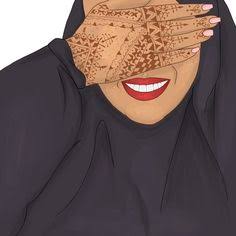The society is torn in its impression of the hijab and the hijab sisters. The Muslim circle itself seems also like a house divided on the issue of the hijab. Stereotypes, discriminations, impressions, misconceptions all abound stoking controversies around the topic. What is true? What is not? Qowiyat Adepoju reports
Head coverings are in plethora in the society with many using them at their will for the purpose they intend them to serve.
For some, it is the cap and how it shields them from the sun. For some, it is the scarf, and how it accentuates their beauty. For some, it is the durag, and how it, perhaps, makes them stay “woke”.
Different head coverings with their different purposes every human chooses to identify with.
The Hijab
For the believing Muslim females, it has to be the hijab and the dictates of the religion to have them use it.
Draping down to their shoulders and coming in different colours and length, the hijab is mostly worn by some ladies in the Muslim circle, but this they conceded has not been without societal scorns.
“At first, I kind of felt inferior when putting it on as to how people would perceive me or what would people think of me but later on I got used to it,” said Rofiah Olayinka, a Marketing student.
Drawing similar experience with Olayinka as to the usage of the hijab is Akinbo Kafilat, an ND2 student of Accountancy, who divulged that at first for her, putting on the hijab was not an easy act due to the misconception the society had about the hijabis.
She said, “At first putting it on wasn’t easy at all due to the oppression here and there and the stereotypes associated with the hijabis. I am very used to it now. It has become a part and parcel of my dressing.”
The Society and Its Impression
Helen is an HND2 student of Mass Communication, and for she, ladies who use hijabs should not be considered too religious as most of them hide under the hijab to do evil.
“It is their choice and also their religion. It is not like they are too religious because most of them hide under the hijab to do evil.”
Pitching almost the same tent with Helen is Muzha Kucha who conceded the hijab to be a religious apparel, but advocated for the apparel to be far away from corporate organizations.
Her words, “Putting on the hijab for me, first, I see it as a religious issue and personal to the lady involved. And I think caution should be taken when the hijab is to be used in an organization.
“Also, using the hijab is a concern where there is insecurity as people now use it to perpetrate evil in the society just as facemask is also used.
“I have seen cases of men using the hijab to go into girls’ hostels and people using the hijab to conceal weapons during protests and rallies.”
Fakorede Busayo is a Lingusitic Student of Lagos State University 400L, and she said that putting on hijab does not validate moral uprightness.
“Aside from the fact that it depicts religious affinity, I think it is a matter of choice and individual preference. I think it does not make any lady more morally upright than the other because every girl is exposed to the same kind of experience but your values as a person determines how you will handle those experiences,” she said.
Kalu Emmanuel, an HND2 student of Mass Communication, is a guy unlike Busayo, Kucha and Helen. And to him, he had this to say about the hijab sisters, “Beautiful, intelligent with touch of good morals.”
Back to the Hijab Sisters
While the society might have their differing opinions about the hijab and the hijab sisters, some believing ladies are unfazed by it, stating that just like every other head coverings, the hijab has its identity and purpose in the Islamic religion.
Hussein Azeezat, HND1 Mass Communication said that the hijab is a part of her dressing just like wig and make-up are to others.
“The hijab is a part of me and I love it. I am free using it because I considered it as part of my dressing just as others consider the wig and make-up as theirs.”
Olayinka conceded as well, “I see the hijab as an adornment as it is part of the commandments of God on the believing women. I feel very much comfortable with the hijab.
Amusan Ameenat, ND2 Pharmaceutical Technology, brought in a fresh insight to the topic, positing that the hijab is a form of protection from harm, especially sexual harassment.
Ameenat said, “I see the hijab as a protection from harm, most especially sexual harassment and I feel it is the right thing to do as everyone is entitled to wear whatever they so desire.
“I am free and comfortable in it. In fact, I feel incomplete and naked when not putting it on.”
Kafilat also took sides with her, stating emphatically that the hijab is modest way of dressing that shields one from the menace of indecent dressing in the society.
“The hijab to me is a shield against all forms of harm and it is a modest way of dressing that portrays one’s faith and moral. It has become a part and parcel of my dressing and it has saved me from falling into the menace of indecent dressing in the society,” she said.
What of other Muslim Ladies That Don’t Put on Hijab?
In the Muslim community, there seems to exist factions as to the hijab practice. Some put it on, some have never in their lifetime.
“I don’t use the hijab because I am not exposed to it right from time and I don’t think I can cope with the challenges being faced by those that put it on,” said Aminah Idowu, HND2 Accountancy.
For Ayomide Tella, HND2 Mass Communication, not being exposed to it from the onset can pass for a reason she does not put it on, stressing that she would rather put on scarf than the hijab.
“I really don’t have a reason per se for not wearing the hijab, probably because I am not used to it right from time, and I think I am more comfortable with my scarf.”
Different strokes, they say, for different folks. That aptly depicts the standpoint of Ademola Faridah, ND2 Computer Science, who cited her fashion lifestyle as the reason she does not wear the hijab.
She said, “Though I don’t wear the hijab but I don’t open my hair and I try as much as possible to be modest in my dressing. I don’t wear the hijab because I am a fashionista and I would not want something that would cover and affect my fashion lifestyle.”
A Muslim Cleric Speaks
You are most likely going to wonder if those putting on hijab and those who do not her on the same page in terms of religious uprightness, a Muslim cleric, Uztaz AbdulRaheem Muh’Awwal clarified that confusion.
He said, “The hijab is compulsory as it is an injunction from Allah to the believing women and it could be seen in Q33v 59 of the Holy Quran.
“Anyone not observing it as a Muslim is indirectly disobedient to the commandment of God.”
The Muslim Cleric also warned those who take to perpetrate evil using the hijab to stop such acts, stating that the hijab is a pious symbol of the Islamic religion that does not preach evil.
Muh’Awwal also admonished all hijabis to respect the hijab and not use it to promote immoralities.
His words, “Those using the hijab to perpetrate hideous acts should kindly desist from that and avoid denting the image and reputation of Islam because Islam is a religion that advocates for peace and good conduct so when those sets of people are caught, they will surely be brought to justice and face the consequences of their actions.
“It has become an issue to see ladies who use hijab for immorality. But I do tell them that anyone who has the fear of God and fully understand what Islamabad entails and preaches will not in any way use the hijab which is considered an object of Islam to perpetrate immorality in the society.”
Also, he touched on the sentiments of people who look at the hijabis with a perfectionist mindset.
He said, “As regards the society expectations of hijabis to be perfect in all ramifications. First, it should be known that no human is perfect except God and we are all humans who are expected to falter but perfection and excellence can be strived for. So I will implore my sisters in Islam to be the best in all they do and they should not in any way set a limitation for themselves.”
Discrimination against the Hijabis is wrong – Human Rights Activist
Festus Ogun, a human rights activist, called out the stereotype and discrimination faced by the hijabis in the society.
He established that the rights to practice religion does not start and end with theory, but also entails practical such as religious outfits.
He said, “The stereotype on hijabis is needless, thoughtless, ill-intended and unlawful. To wear hijab is a right guaranteed under our laws particularly under the constitution. To subject those wearing hijab to any form of stereotype is a violation of human rights to practice religion and to the liberty of human person. The right to religion is guaranteed under section38 of the constitution. And the right to religion does not necessarily stop at practicing one’s religion. It goes as long as the liberty of one to use religious articles and to wear religious outfits. It is the just the same way catholic makes use of the Holy Rosary. So subjecting them to a form of stereotype is ill-intended and capable of escalating violence in the society.”
To him, saying the hijab is a tool for perpetrating violence is far from what the religion of Islam preaches, and such stereotype should be stamped out of the society.
“We must understand that violence is not peculiar to any religion. In fact, Islam is a religion of peace. I am talking as a Christian, a lawyer and someone who believes in the place of God in human endeavours. What I am saying principally is that stereotyping should not be tolerated in any society. We must understand our individual differences and not hinder the liberty of people from practicing their religion.”
He concluded, “If we begin to stereotype and make baseless accusations or we begin to draw thoughtless inferences to the wearing of hijab. Definitely, we are making a violation of hijabis’ right to religion guaranteed under section 38. There is no reason such stereotype and suspicion should be allowed. There is no reason folks and friends wearing hijab should be subject to any form of harassment. I see it as a psychological and emotional harassment for our hijab sisters.”





